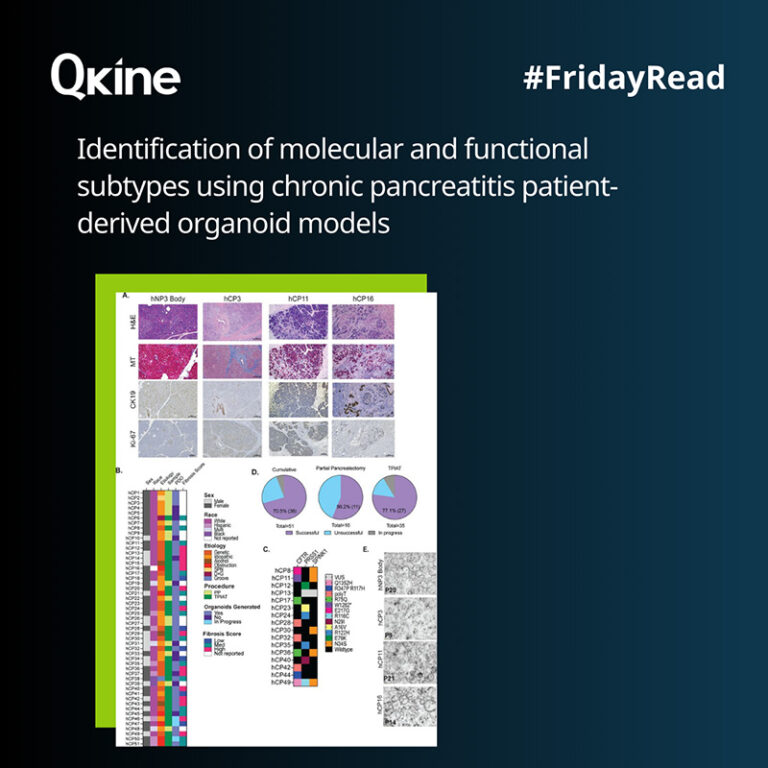Identification of molecular and functional subtypes using chronic pancreatitis patient-derived organoid models
Victoria Osorio-Vasquez, Jan C. Lumibao, Kristina L. Peck, Kathryn Lande, Jonathan Zhu, McKenna Stamp, Shira R. Okhovat, Hyemin Song, Satoshi Ogawa, Jasper Hsu, Yang Dai, Angelica Rock, Chelsea Bottomley, Ethan Thomas, Alexandra Fowler, T’Onj McGriff, Siri Larsen, Muhamad Abdulla, Phil Greer, Jessica Gibson, Michael Downes, Ronald Evans, Jingjing Zou, Andrew M. Lowy, David C. Whitcomb, Rebekah White, Melena Bellin, Herve Tiriac, Dannielle D. Engle
The weeks #Fridayread reports on the development of a patient-derived organoid biobank for the study of chronic pancreatitis and other pancreatic diseases. This will allow the development and testing of targeted therapeutics.
Chronic pancreatitis is a common disease, affecting >200,000 in America and 1 million worldwide. It is hard to predict whether acute pancreatitis will become chronic and there are multiple causative agents including gallstones, alcohol, tobacco and genetics as well as unknown causes.
In this study they demonstrated a 70-85% efficiency in culture of patient derived organoids, an improvement on the 10-40% efficiency previously found from iPSC cultures. This rapid and efficient creation of patient derived organoids with close similarity to patient tissue samples at the DNA and protein level is a step forward in the availability of organoids for the study of disease mechanisms and treatment.
This group used Qkine noggin and R-spondin 1 (RSPO1) in the culture of human and mouse normal pancreatic organoids and organoids derived from human chronic pancreatitis.
View more on Qkine high purity animal origin-free proteins for reproducible organoid cultures
